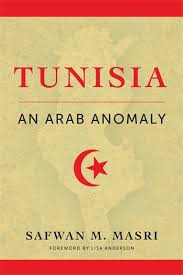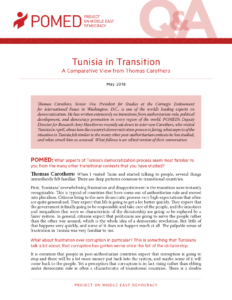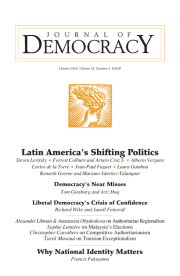 Nidaa Tounes yesterday described a ministerial reshuffle in Tunisia as “a coup against the constitution and democracy in the country,” Middle East Monitor reports:
Nidaa Tounes yesterday described a ministerial reshuffle in Tunisia as “a coup against the constitution and democracy in the country,” Middle East Monitor reports:
Secretary-General of Nidaa Tounes Slim Riahi said in a press conference that “the ministerial reshuffle is marred by procedural errors”. He added: “The law does not authorise the head of government to carry out this reshuffle without consulting the President of the republic and discussing the matter in a ministerial council,” which has not been done according to him.
On Monday, Tunisian Prime Minister Youssef Chahed announced a wide ministerial reshuffle in his government, including 13 ministerial portfolios and five minister delegates.
Prime Minister Chahed has appointed Roni Trabelsi the country’s tourism minister. He is the first Jewish Tunisian to hold a cabinet post (Ynet) in more than 150 years (HT: CFR).
The conflict between President Essebsi’s son and Chahed within Nidaa Tounes is both increasingly fragmenting Tunisian politics and making youth less committed to a democracy now perceived as out of touch with average Tunisians’ needs, analyst Amir Mastouri writes in Infighting in Nidaa Tounes: A Danger to Tunisia’s Democracy? for the Fikra Forum.
The Tunisian state appears both open and cautious to accommodating civil society, says Maro Youssef, a PhD student in sociology at the University of Texas at Austin and a former State Department Middle East and North Africa analyst. Several prominent civil society associations advocate for a variety of issues that directly affect Tunisians, Youssef writes for Open Democracy:
 The Tunisian Association of Democratic Women (ATFD) and the Association of Tunisian Women for Research and Development (AFTURD) focused on women’s rights, while the Tunisian General Labor Union (UGTT) negotiated on behalf of Tunisian workers. The Tunisian Human Rights League (LTDH) and the Tunisian branch of Amnesty International primarily focused on human rights abuses that state officials committed. All five associations remain relevant today and are fundamental to negotiating the transition. UGTT and LTDH were two of the four recipients of the 2015 Nobel Peace Prize, while ATFD and AFTURD helped mobilize as many as 6,000 women during the 2012 demonstrations in response to the first draft of Tunisia’s new constitution, wherein Article 28 stated that women were “complementary,” not equal, to men.
The Tunisian Association of Democratic Women (ATFD) and the Association of Tunisian Women for Research and Development (AFTURD) focused on women’s rights, while the Tunisian General Labor Union (UGTT) negotiated on behalf of Tunisian workers. The Tunisian Human Rights League (LTDH) and the Tunisian branch of Amnesty International primarily focused on human rights abuses that state officials committed. All five associations remain relevant today and are fundamental to negotiating the transition. UGTT and LTDH were two of the four recipients of the 2015 Nobel Peace Prize, while ATFD and AFTURD helped mobilize as many as 6,000 women during the 2012 demonstrations in response to the first draft of Tunisia’s new constitution, wherein Article 28 stated that women were “complementary,” not equal, to men.
 Things could have gone wrong in Tunisia, notes Tarek Masoud, the Sultan of Oman Professor of International Relations at Harvard’s John F. Kennedy School of Government. For instance, in 2010, after the self-immolation of Mohamed Bouazizi in the town of Sidi Bouzid, leaders of the national labor union headed to the scene, he writes for the National Endowment for Democracy’s Journal of Democracy in a review of Safwan M. Masri’s Tunisia: An Arab Anomaly:
Things could have gone wrong in Tunisia, notes Tarek Masoud, the Sultan of Oman Professor of International Relations at Harvard’s John F. Kennedy School of Government. For instance, in 2010, after the self-immolation of Mohamed Bouazizi in the town of Sidi Bouzid, leaders of the national labor union headed to the scene, he writes for the National Endowment for Democracy’s Journal of Democracy in a review of Safwan M. Masri’s Tunisia: An Arab Anomaly:
When told by local union militants that “everything was under control,” they could have packed up and gone home instead of responding, as they did: “We did not come to Sidi Bouzid to put out the fire; we came here to ignite it” (p. 41). Similarly, General Rachid Ammar—the Tunisian army chief of staff credited with supporting the 2011 revolution—could have acquiesced to what Masri describes as “popular support for the army to take charge” after Ben Ali’s departure, instead of heading back to the barracks (p. 49).
And just as things could have gone wrong, so may they still. As of this writing in September 2018, the country remains under a “state of emergency” imposed in 2015. Indeed, at a time when the established democracies of the West are by some accounts holding onto democracy with their teeth, grappling with populist authoritarians and illiberal democrats, it seems surpassingly naïve to talk about any country’s fulfillment of some predetermined, democratic destiny.
“But that sobering thought also carries with it a sense of possibility,” Masoud adds. “After all, if things can still go wrong in Tunisia, then it is possible that, in the rest of the Arab world—doomed by Masri to more of the backwardness and authoritarianism that have plagued it throughout the last century—things may still go right.”







